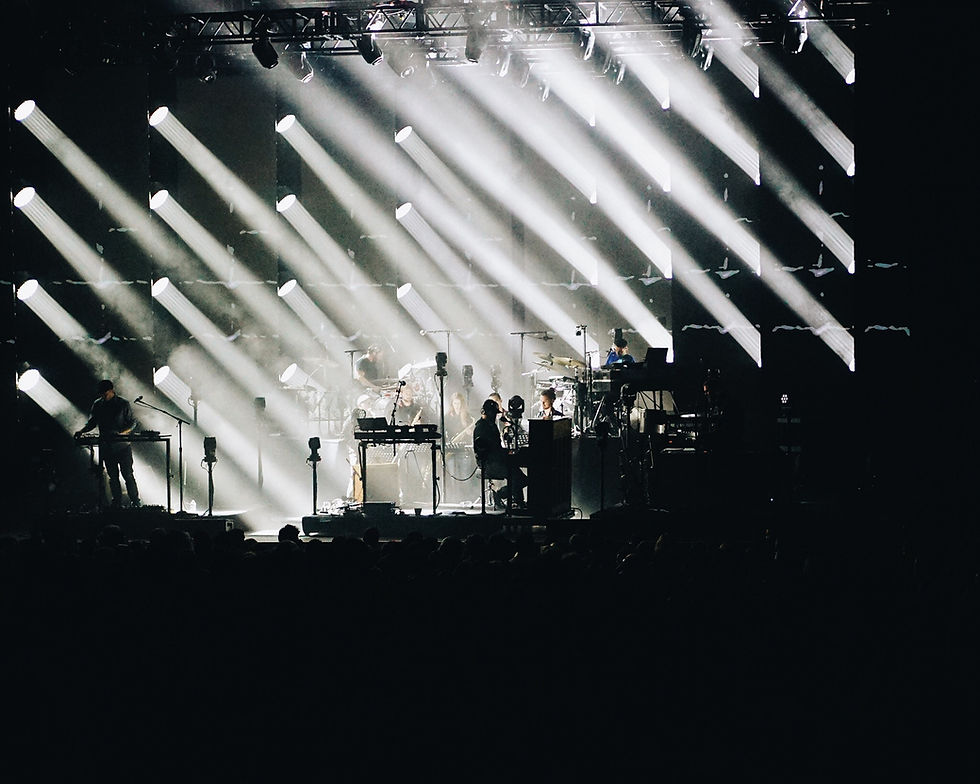Finding Sanctuary
- Craig Freund, MA, LPC, ACS

- Dec 18, 2017
- 4 min read
Updated: Apr 11, 2024

In my darkest times, I have turned to music. The obsession started early, and I was only 14 or 15 before I was regularly attending concerts with my now lifelong best friend. We were skateboarders at a time when skateboarding was not cool or popular, and we generally just did not find much acceptance within our very conservative hometown. We started making a habit of escaping into the Manhattan for a Saturday matinee at ABC No Rio or CBGB, or convincing one of our unwilling parents to drive us to some obscure punk show 40 miles away. Our parents couldn’t stand their kids dressing like punks and attending what they believed to be very dangerous concerts, which made it all the more vital for us. We’ve shared this connection since, visiting one another in different states to see our favorite bands play. Whenever I felt homesick or down, this music pulled me right out of it. There’s a feeling that comes from screaming and thrashing about with both friends and strangers that is impossible to replicate. It is at once cathartic and connecting. That visceral connection, I think, is the most important part. It gives the outside a place to feel like an insider.
That’s why I fell in love with punk and hardcore music.
For a long time, I felt like that experience would be difficult to replicate with any other type of music. I loved that punk and hardcore more music was dirty, fast, gritty and to the point. You didn’t have to guess at what people were feeling. Everyone was in it together. If someone fell, 10 hands reached out to pick them up. The singer of the headlining act might pass you the mic to sing for a longer than appropriate portion of the song, or see that you got hurt in the pit and come ask how you’re doing after the show. We met strange people who lived lives we understood nothing about. We leaned against the walls of dirty clubs smoking cigarettes and had our eyes opened to a world of people who lived however they wanted to.
Most importantly, we were experiencing this unknown, surreal world together.
Early this year, I was on the receiving end of a traumatic event at a hardcore show in Denver. I was injured, though not severely, but the entire incident unfolded unlike anything I had experienced at similar shows for the previous 20 years of my life. My sanctuary was no longer a place of comfort for me. After I got over my initial disillusionment, I realized that I was already finding experiences here that were fulfilling me elsewhere, and that, perhaps it was the experience of connection that was most important part. Sharing one’s catharsis with other people, makes it that much more powerful. I liken this to the same way one might experience meditating alone versus meditating among a group of people with a singular intention. I came to realize that the scene that I grew up with was not the one I was experiencing in Denver. I couldn’t come to a new city and expect the same beliefs and values to be present. This was difficult for me.

I was attached to the scene I grew up with, and with the feeling that it provided me when I was a struggling teenager. My attachment made it difficult for me to see opportunities for new experiences. Eventually, it was cemented for me that my identity did not need to be tied to a specific type of music. I needed, instead, to be open to the new experiences, while understanding that any expectations I placed on these new experiences were probably unreasonable. I needed to let go of the idea that my past experiences with music were somehow better or more unique than what other people were getting from the music that moved them.
I found myself embracing a much more diverse group of musicians and musical genres. I allowed myself to be open to what the new people in my life were interested in listening to. In turn, they opened themselves to the music that was important to me. I’ve now been to countless hip-hop, rock, industrial and even electronic shows, and I’ve found that each is unique in what is offers. Each is valuable, and cathartic in its own right. Each was shared with me by someone who is deeply moved by that type of music, which has enriched my experiences greatly.
Music has always been an outlet for those who struggle.
I believe we connect to the darkness, pain, joy and love that music is capable of creating. Perhaps it is a way for one person to briefly connect with another as they pass in the dark, and these connections are moments of light.. These are the moments when, despite feeling separate or different from society as a whole, we can be a part of something bigger, deeper and more powerful. It’s where we find our people – the ones who give us hope through our hardest times, the ones who let us know that we belong to something bigger.
Richard Brodt is a former intern at People House with the Affordable Counseling Program, and is currently a co-owner and private practitioner at Elevated Counseling, PLLC in the Highlands area of Denver. Prior to training to become a therapist, Rich practiced as a mental health litigation attorney in New York City, where he first became passionate about the field. Rich draws on knowledge of law, philosophy and poetry, bringing a unique perspective to his sessions.







Comments